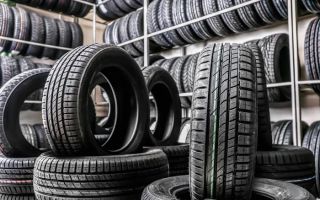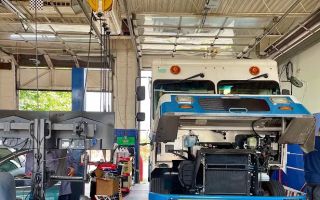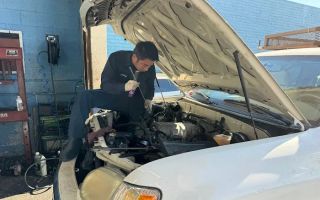How to Tell If Your Tire is Under-Inflated and About to Blowout
As a driver, there's a certain level of trust you place in your vehicle, especially in the tires that keep you grounded on the road. Tires are an essential component of your vehicle, and understanding how to maintain and assess their health can save you from unexpected and potentially dangerous situations. In this guide, I’ll walk you through the critical signs that indicate your tire may be under-inflated and on the verge of blowing out. By learning how to spot these issues early, you can avoid a stressful roadside emergency and maintain a safer driving experience.
- 1. Recognizing the Signs of Under-Inflation
- 2. Understanding Why Tires Blow Out
- 3. How to Check Your Tire Pressure Correctly
- 4. Long-Term Tire Maintenance Tips
- 5. Common Mistakes People Make with Tire Pressure
- 6. What to Do If You Suspect Your Tire is About to Blow Out
1. Recognizing the Signs of Under-Inflation
When your tire is under-inflated, it doesn't just affect your driving experience; it can also lead to serious consequences. One of the first signs is that your car may feel like it's dragging. Have you ever felt like the car is pulling slightly to one side or the ride isn’t as smooth as usual? That’s often a sign of low air pressure. Another indicator is that your tires look visibly flat or sagging, even if they’re not completely deflated. If you’ve been on a long drive or parked for an extended period, this might be an obvious sign that your tire pressure is off.
In addition to these, some people notice increased tire wear in certain areas. Uneven wear, especially around the edges of the tire, can indicate under-inflation. This uneven wear not only shortens the lifespan of your tires but also makes your vehicle more prone to accidents, especially during sudden stops or sharp turns.
2. Understanding Why Tires Blow Out
So, why exactly do under-inflated tires blow out? Tires are designed to withstand certain pressures, and when they’re under-inflated, they don’t perform optimally. The rubber becomes more prone to heat buildup and friction with the road. This causes the tire to weaken over time. When a tire is under-inflated, the sidewalls of the tire experience more stress because they are forced to absorb more pressure. The combination of these factors can cause the tire to burst, especially if you're traveling at high speeds or encountering a sharp object like a nail or debris in the road.
Another reason is that under-inflation can increase the risk of tire separation. If you’ve ever driven over a pothole or through a bumpy area, you might notice the sidewall of a tire bulging out. This is often a sign of damage from under-inflation, which can eventually lead to the tire’s complete failure.
3. How to Check Your Tire Pressure Correctly
Checking your tire pressure is an easy process, and it’s something every driver should do regularly. Here’s how you can check your tire pressure:
- Get a tire pressure gauge: These are inexpensive and easy to use. You can find them at most automotive stores or online.
- Know the recommended pressure: Every vehicle has a recommended tire pressure listed in the owner’s manual or on a sticker inside the doorframe of your car. This is the ideal pressure your tires should be inflated to.
- Check the pressure: Place the gauge onto the valve stem and press down firmly. The gauge will show you the current tire pressure.
- Compare with the recommended PSI: If your tire pressure is lower than recommended, it’s time to inflate it.
For best results, check your tire pressure when the tires are cold, ideally before you’ve driven the car or after it’s been parked for a few hours. If your tires are hot, you may get an inaccurate reading.
4. Long-Term Tire Maintenance Tips
Maintaining the right tire pressure isn’t just a one-time task. It's a long-term commitment that ensures your safety on the road. Apart from regular tire pressure checks, here are some additional tips:
- Rotate your tires regularly: This helps in achieving even wear and ensures that all tires wear out at a similar rate.
- Inspect for damage: Look out for visible cracks, cuts, or punctures, especially along the sidewalls. These can indicate more severe problems and require professional inspection.
- Balance your tires: Proper balancing reduces vibration and stress on your vehicle’s suspension, ultimately prolonging the life of your tires.
- Replace tires when necessary: Even if you maintain them well, tires eventually wear out. Keep an eye on tread depth, and replace tires that are nearing the end of their lifespan.
5. Common Mistakes People Make with Tire Pressure
Unfortunately, many drivers neglect tire maintenance, which can lead to dangerous situations. One common mistake is ignoring the pressure gauge. Drivers might think that if the tire looks fine, it’s okay. But even if a tire looks fully inflated, it could still be under-inflated. Another mistake is waiting until you feel that the car is dragging or hear a strange noise before checking the tires.
Another issue is not checking the pressure regularly. Tire pressure naturally drops over time, and unless you’re checking it often, you may miss the gradual under-inflation before it leads to a blowout.
6. What to Do If You Suspect Your Tire is About to Blow Out
If you notice any of the warning signs mentioned earlier, or if you feel that your tire is losing air rapidly while driving, the first thing to do is to pull over safely. Avoid slamming on the brakes. Instead, slow down gradually and guide your car to a safe area away from traffic.
Once stopped, check the tire to assess the situation. If you’re unsure about the extent of the damage or can’t find the leak, it’s best to call for professional help. That’s where services like Rescue & Towing come in. They can assess the situation and help you with a safe tire replacement or towing service if needed.
























